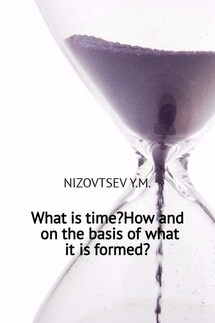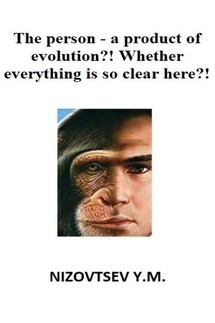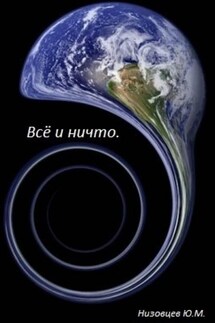Everything and nothingness - страница 21
This process lasts infinitely, inasmuch Uniform, as "supplier" of things, has no borders, and form-building abilities of the single consciousness are incessantly improved in beingness. Therefore the question of cognition should be put differently: whether is possible the limit to cognition of things by consciousness?
And the answer to it consists in lack of opportunity of something inaccessible to the single consciousness. inasmuch consciousness itself forms, as a result, beingness according to own understanding; but consciousness along with that uses the infinite "depth" of Uniform and variety of things from Uniform, thanks to what consciousness into own uncountable particles can infinitely develop changing itself with change of each of them.
In this respect the reality of the world can be considered as proved if not to rely only on the person who is just one of numerous representatives of consciousness in measurements of beingness, but to keep in mind consciousness, forming to itself beingness for life and development on the basis of Uniform in the finite infinitely what actually makes the meaning of this beingness.
Heidegger, contrary to Hegel, believes beingness as substantiality, which doesn't need any other entities: “Substantiality is the idea of Being to which the ontological characterization of the res extensa harks back. “Per substantium nihil aliud intelligere possumus, quam rem quae ita existit, ut nulla alia re indigeat ad existendum.” “By substance we can understand nothing else than an entity which is in such a way that it needs no other entity in order to be.” The being of a “substance” is characterized by not needing anything” [4, p. 125].
Feeling limitation of beingness constructed on thingness and not understanding from where things come as well as how things are retained in beingness, Heidegger, as well as most of thinkers up to him, comes to God: “Substantia quae nulla plane re indigeat unica tantum potest intelligi, nempe Deus (Substance, which isn't needing in any thing absolutely, can be thought only as one, namely God)… Alias vero omnes (res), non nisi ope concursus Dei existeri posse percipimus (But all other (things), we notice, can't exist differently as needing the help of God)… All entities other than God need to be “produced” in the widest sense and also to be sustained” [4, p. 125].
Thereby Heidegger believes that beingness is relatively autonomous structure which is made and sustained by God.
At the same time, believing this explanation of beingness by insufficient and banal, Heidegger comes back to the person, whose substance, in his opinion, is the existence in this reality: “Entities with Dasein's kind of Being cannot be conceived in terms of Reality and substantiality; we have expressed this by the thesis that the substance of man is existence. Yet if we have Interpreted existentiality as care and distinguished this form Reality. This does not signify that our existential analнtic as in end; we have merely allowed the intricate problems in the question of Being and its possible modes, and the question of the meaning of such modifications, to emerge more sharply: only if the understanding of Being is, do entities as entities become accessible; only if entities are of Dasein's kind of Being is the understanding of Being possible as an entity” [4, p. 255-256].









